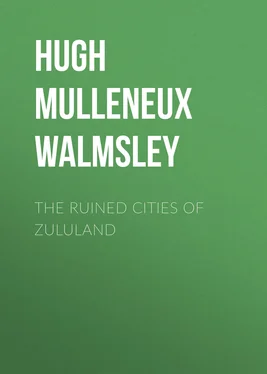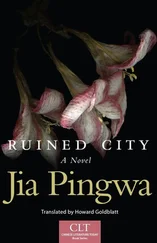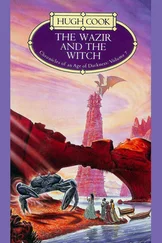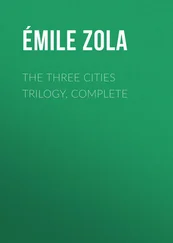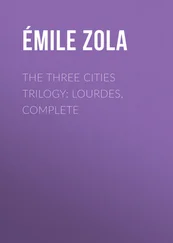Hugh Walmsley - The Ruined Cities of Zululand
Здесь есть возможность читать онлайн «Hugh Walmsley - The Ruined Cities of Zululand» — ознакомительный отрывок электронной книги совершенно бесплатно, а после прочтения отрывка купить полную версию. В некоторых случаях можно слушать аудио, скачать через торрент в формате fb2 и присутствует краткое содержание. Жанр: foreign_prose, История, foreign_edu, foreign_antique, на английском языке. Описание произведения, (предисловие) а так же отзывы посетителей доступны на портале библиотеки ЛибКат.
- Название:The Ruined Cities of Zululand
- Автор:
- Жанр:
- Год:неизвестен
- ISBN:нет данных
- Рейтинг книги:4 / 5. Голосов: 1
-
Избранное:Добавить в избранное
- Отзывы:
-
Ваша оценка:
- 80
- 1
- 2
- 3
- 4
- 5
The Ruined Cities of Zululand: краткое содержание, описание и аннотация
Предлагаем к чтению аннотацию, описание, краткое содержание или предисловие (зависит от того, что написал сам автор книги «The Ruined Cities of Zululand»). Если вы не нашли необходимую информацию о книге — напишите в комментариях, мы постараемся отыскать её.
The Ruined Cities of Zululand — читать онлайн ознакомительный отрывок
Ниже представлен текст книги, разбитый по страницам. Система сохранения места последней прочитанной страницы, позволяет с удобством читать онлайн бесплатно книгу «The Ruined Cities of Zululand», без необходимости каждый раз заново искать на чём Вы остановились. Поставьте закладку, и сможете в любой момент перейти на страницу, на которой закончили чтение.
Интервал:
Закладка:
Captain Hughes seemed lost in contemplation, but Masheesh, laying his hand on his shoulder, signed to him to come away, and both letting themselves slide down the slope, the herd remained quite unconscious of their presence.
The two were silent for some time, but when the savage deemed they were far enough distant to allow of it without giving the alarm, he spoke rapidly enough. Luji coming up at the moment, Hughes learned that the strange animals were gnus, and a whispered conversation followed, it being agreed that under cover of the crest, or green ridge, Hughes and Masheesh should gain the outlet of the valley, while Luji and Noti were to make a long détour, and coming down the wind, drive the herd before them.
The savage carefully posted his companion, and then pointing to a bend in the valley, about forty paces distant, uttered some sentences volubly, and going away buried himself in a neighbouring thicket. All seemed dead silence, and the watcher soon grew weary of it. A quarter dragged itself on into half an hour, and still nothing save the deep silence of the African plain. Suddenly the soldier who had been watching the serried ranks of the ants as they marched along in countless numbers, ever in a straight line, became conscious of a clump of bushes, at the bend of the valley to which Masheesh had pointed, which certainly was not there a quarter of an hour before. The bush had a curious motion, and Captain Hughes concluded there was some wild animal concealed therein—a lion probably, watching the distant herd, and by its presence hindering the gnus coming. His rifle on full cock, firmly grasped in his hands, he eagerly watched the bush. Yes, it certainly moved, slowly but surely.
Raising the deadly rifle, the hunter took a deliberate aim right into its centre. Just as the finger was about to pull the trigger, the thought flashed over him, that if it concealed a lion and the fire were not fatal, the risk would be great. Lowering the weapon, he watched the bush intently, determining to wait till the lion made its spring, or to fire if he could get a glimpse of the animal. An hour had passed, and the temptation returned in full force.
The dead deep silence weighed upon him, the strange motions of the bush made him nervous. Again the rifle was raised, when a loud trampling noise was heard, as with their heads down and their spiral horns glittering in the sun, the troop of gnus came on at top speed. A more ferocious-looking lot could hardly be imagined, as they headed dead down the valley. Still the hunter’s attention was divided, and more engrossed with the bush than with the game. The gnus rapidly neared it, urged on by the shouts of Noti, while Luji’s voice was plainly to be heard far away in rear. They were close to it; about to pass in safety, when a piercing yell rang from the bush, and a bright spear glancing in the sunshine struck the leading gnu, while Masheesh, casting his leafy covering, sprang to his feet. The report of the soldier’s rifle followed, and one of the herd rolled heavily forward, breaking its horns in the impetus of the fall. The animal struck by the spear halted at once, stamping violently with its forefoot, and lowering its head for the charge. The savage stood awaiting it, his knobstick in his left hand, the long glittering dagger in his right, tall, erect, and fearless, the very picture of a dusky brave. With an angry snort the bull rushed on, but the savage stepped lightly aside, and the steel sank deep into the flesh near the spine. Again the gnu turned to charge, for a moment hesitating, as it lowered its shaggy head, but at that instant a ball from the deadly English rifle struck right between the eyes, and it fell heavily close to Masheesh, the blood gushing from its mouth. It was a much larger one than that first killed, when measured proving fully seven feet four inches from the top of the nose to the base of the tail. The horns were one foot ten inches in length, and the animal stood at least four feet in height at the shoulder. The hoof, as Captain Hughes and the delighted Masheesh stood beside the carcass, seemed too large for the legs, and the knee joints were covered with a hard substance like those of a tame ox. In fact the animal seemed to resemble much the half-wild oxen of India, and, before it charged, the wounded gnu pawed with the forefoot, tossing its head exactly as a wild bull would have done. Hughes now learned that the natives regularly hunt the antelope and zebra in the way Masheesh had done that day, whole herds feeding carelessly up to the supposed bush, but on this occasion the concealed man had run unconsciously a terrible risk.
The sun was sinking towards the west—telling that it was time to strike the river, by whose banks the rest of the party had outspanned; so leaving Luji, Noti, and one of the Kaffirs to cut up and bring in the meat, the two stepped out for the Limpopo. Any fatigue, any privation Masheesh would endure, but even such manual labour as that of cutting up the carcasses of the slain he utterly disdained. It was sunset when the camp was at last reached, and there a messenger from Mozelkatse was found.
“It would appear,” said the missionary, who was busy preparing some skins of birds he had shot, “that a strong party of the Matabeles have joined their king.”
“Well, all I can say is, a good wash and something to eat are of more importance to me just now than all the kings in the world. You don’t know how tired I am, and then nothing to eat besides.”
“Look at Masheesh, whom you called an uneducated savage this morning,” replied Wyzinski, pointing towards the individual named, who after a drink of water had quietly seated himself, not even noticing the runner of his people, and was smoking, varying the amusement with an occasional pinch of snuff, and waiting calmly until some meat should be cooked by some one, he cared not by whom, provided he had nothing to do with it.
“Well, I suppose you don’t want me to smoke and take snuff as proofs of civilisation.”
“You have heard of the man, have you not, who thanked God he had at least reached a civilised country on seeing a gibbet? However,” continued Wyzinski, “yonder runner brings us an invitation from Mozelkatse, to join a great hunt in which the tribe is taking part on the banks of the Limpopo.”
“That will be worth seeing. And when is it to take place?” asked Hughes, forgetting hunger and fatigue.
“To-morrow.”
“Accept it, by all manner of means.”
Masheesh was interrupted in the tobacco-smoking process. The runner, who since his arrival in camp, had been gorging himself with meat, was sent back; great steaks and collops of venison cut from the hartebeest were grilling on the clear wood fire, and soon the howling of the hyenas, as they tore the bones of what had been left behind of the two gnus, as not worth bringing away, were the only sounds which disturbed the quiet of the little camp on the banks of the Limpopo.
Early morning saw the whole party afoot.
“Had we not better send Luji back to the tent?” said Hughes, as the morning light becoming clearer, they looked back from the crest of a rise, and saw it shining in the early sunbeams.
“We shall need him as an interpreter, perhaps. I can just manage, and that is all, to be understood,” replied Wyzinski; “everything is safe. Noti will keep a look-out.”
“See, there are a lot of Matabeles,” exclaimed Hughes. “They are quite naked, and have bows and arrows.”
“And there are more. Look in what numbers they are turning out! Yonder fellows have flint musquets: where did they get them, Luji?” asked the missionary.
“The Portuguese on the Zambesi—him sell, Master,” was the answer.
And now detachment after detachment came on, spreading out across the country, like infantry skirmishers, some carrying only spears, others bows and arrows, and a few, a very few, musquets, but always in line: shouting, yelling, and driving everything before them. Soon the antelope came bounding past, endeavouring to escape, but were driven back again, as the long line of savages, throwing forward the two flanks, enclosed them in a crescent miles in length, and drove them back on the river. Herds of koodoos, eland, and hartebeest came scouring along, attempting to break through in vain, while the painted zebra, the graceful leche, with its long tapering horns, were remorselessly driven back by the yells and shouts of the Matabele.
Читать дальшеИнтервал:
Закладка:
Похожие книги на «The Ruined Cities of Zululand»
Представляем Вашему вниманию похожие книги на «The Ruined Cities of Zululand» списком для выбора. Мы отобрали схожую по названию и смыслу литературу в надежде предоставить читателям больше вариантов отыскать новые, интересные, ещё непрочитанные произведения.
Обсуждение, отзывы о книге «The Ruined Cities of Zululand» и просто собственные мнения читателей. Оставьте ваши комментарии, напишите, что Вы думаете о произведении, его смысле или главных героях. Укажите что конкретно понравилось, а что нет, и почему Вы так считаете.
